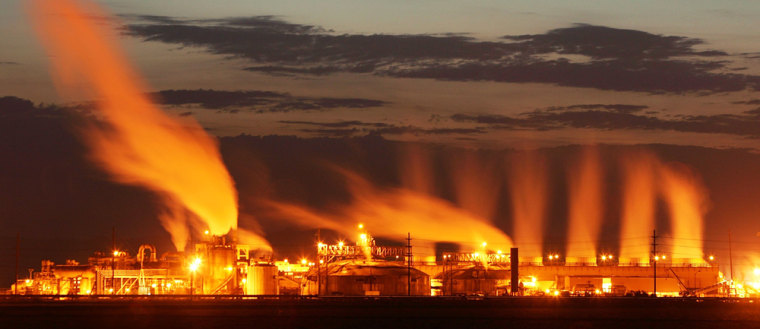The lawmaker set to head the U.S. Senate called Wednesday for more incentives to expand geothermal power production, and accused the White House of being slow to support renewable energy.
Sen. Harry Reid of Nevada, who will be the chamber’s majority leader once Democrats take control of Congress in 2007, said U.S. energy companies need more incentives to produce geothermal power, which uses heat pockets beneath the earth’s surface to turn water to steam, powering turbines and generating electricity.
“The reason geothermal is a good alternative energy is that it’s a good 24-hour cycle,” Reid told reporters after meeting with geothermal industry officials. “The sun goes down at nighttime, the wind doesn’t blow all the time, but the steam comes from the Earth all the time.”
According to the Geothermal Energy Association, 58 new U.S. geothermal energy projects are in the works, which would double the nation’s geothermal capacity to more than 5,000 megawatts.
But a production tax credit to build new geothermal plants expires at the end of 2007, which means some plants on the drawing board could be scrapped if they lose a tax credit of 1.8 cent per kilowatt-hour.
“We have some tax problems,” Reid said. “These geothermal plants cost money to build and the tax credits for them have not been as favorable as for wind and solar.”
Reid said he will seek more money for geothermal projects, but worries the Bush administration is more interested in expanding U.S. crude oil pumping capacity than in expanding renewable energy sources.
“This administration is so oil-friendly that we have been able to get their attention on virtually nothing that is not oil related,” Reid said. “They’re not that interested in renewables.”
Bush administration officials said they are already pushing hard to expand renewable supplies.
“To say that we’re not interested in renewables is categorically incorrect,” said Craig Stevens, an Energy Department spokesman, citing administration proposals to set aside more money for new energy sources.
The Advanced Energy Initiative, proposed by President Bush this year, expands production from biomass, solar, wind, hydrogen and battery technologies, Stevens said.
Energy legislation that became law last year gives $14.5 billion in incentives for a range of energy sources, including low-emission coal, nuclear, cleaner cars and energy efficiency.
The Bush administration wants Congress to repeal $1 billion in tax credits for oil and gas production and about $600 million for refinery expansions.
“There is plenty of profit incentive for oil companies to further explore and build refining capacity,” Stevens said, referring to U.S. crude oil prices near $60 a barrel.
